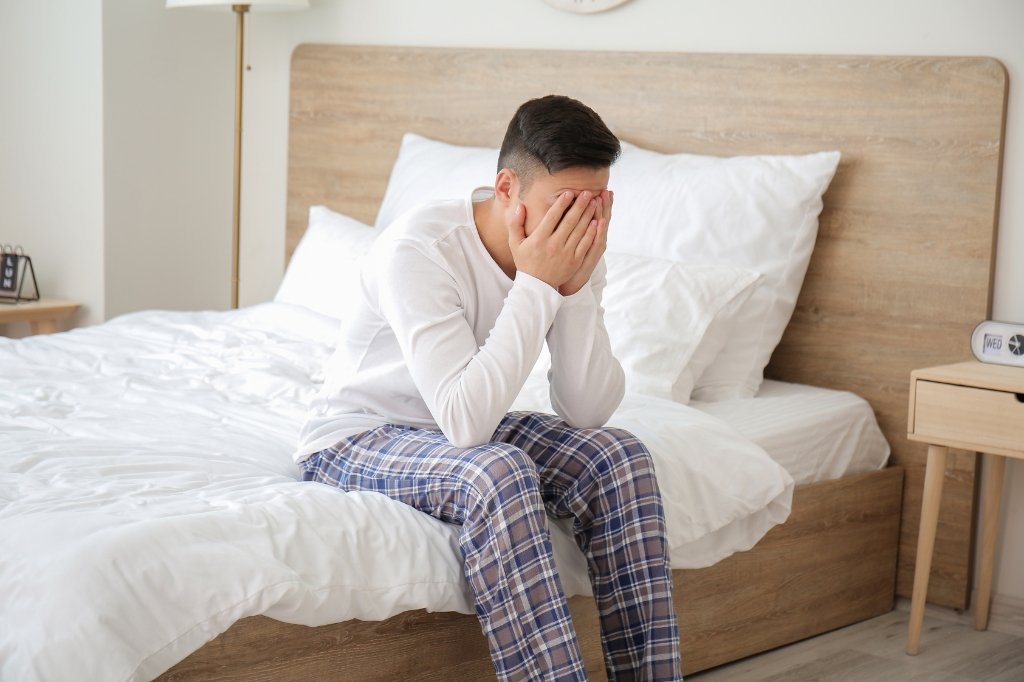How Sleep Deprivation Affects Your Mind and Body
We often hear people say they can function on little sleep. The truth is that sleep is not optional. It is one of the most essential needs of the human body, and without it, both physical and mental health begin to suffer. At Lifeline Clinic Dubai, we frequently see how sleep deprivation creeps into daily life, sometimes unnoticed, until symptoms become too disruptive to ignore.
What is Sleep Deprivation?
Simply put, not receiving enough sleep to meet the body’s demands is known as sleep deprivation. While one late night may leave you tired the next day, long-term sleep deficiency can cause far more serious problems. If you’re an adult, you need between 7 and 9 hours of sound sleep each night. If you consistently miss this range, it will undoubtedly lead to sleep deprivation.

Some Symptoms of Sleep Deprivation
There are multiple ways symptoms of sleep deprivation can show up. Some are more obvious; for example, if you are yawning constantly or are tired, sleep deprivation is quite apparent. Other symptoms are less noticeable and could be mistaken for other issues. Some of the most common sleep deprivation symptoms include:
- Difficulty concentrating or paying attention
- Irritability or rapid mood changes
- Loss of memory or slower reaction time
- Problems making decisions
- Suppressed immune system and frequent colds
- Constant drowsiness even after caffeine
- Headaches or minor aches and pains
When these signs become part of your everyday life, they point to more than just a busy schedule. They signal that your body and brain are not getting the rest they need.
How Sleep Deprivation Affects the Brain
The mind is one of the first places where sleep deficiency shows its impact. Sleep deprivation negatively impacts how brain cells communicate, causing forgetfulness, impaired judgment and slower reactions to things. The more extended sleep deprivation affects you chronically, the greater the risk of developing anxiety, depression, and/or other mood disorders. Not getting enough sleep also involves creativity and problem-solving capabilities, both of which are essential in both work and personal life.
More troubling, chronic sleep deprivation increases the risk of developing severe neurological complications, such as cognitive decline later in life.
How Sleep Deprivation Impacts the Body
Sleep is not just a brain process. When you sleep, your body also repairs muscles, regulates hormones, and enhances your immunity. When you shut off sleep, you interrupt these processes. Some of the physiological effects are:
- Decreased immunity: Increased illness or longer recovery
- Increased strain on cardiovascular health: Increased risk for high blood pressure and heart disease
- Weight change: Hormonal imbalances may increase cravings and lead to weight gain
- Diabetes risk: Poor sleep affects the way the body regulates blood sugar
- Slower healing: Wounds and injuries may take longer to heal
Because sleep deprivation reduces attentiveness, it is also linked to a higher risk of accidents, whether they occur at work or while driving.

Causes of Sleep Deficiency
Not all sleep issues are created equally. Some individuals have medical conditions that may include sleep apnea or restless leg syndrome, while others may simply have difficulty with lifestyle habits. Some common causes could be:
- Irregular work shifts
- Stress and worry
- Too much phone/screen time before bed
- Caffeine or heavy meals later in the evening
- Underlying health issues that may disrupt sleep
It is essential to begin effectively treating sleep problems by identifying the underlying reason.
Improving Sleep: Practical Steps
Returning from sleep deprivation requires consistency and some healthy habits. Some practical steps to take are:
- Keeping a consistent sleep routine, especially on the weekends
- Creating a dark, quiet, and calm bedroom environment
- Taking a break from screens at least an hour before bed
- Avoid nicotine, caffeine, or heavy dinners in the evening
- Involve relaxing activities such as reading or light stretching
For some individuals, these adjustments may be sufficient to improve sleep; for others, a formal assessment may be necessary to achieve optimal results.

When to Seek Help
If you are persistently exhausted, have chronic symptoms of sleep deprivation, or simply find that poor sleep is impacting your work or relationships, it is time to see a specialist. At Lifeline Clinic Dubai, our specialists can identify underlying contributing illnesses and provide individualised approaches to restore your sleep health.
Sleep deficiency is not something to be pushed aside or ignored. It can result in significant long-term health problems if left unaddressed.
Final Thoughts
Sleep is as important as nutrition and exercise for your well-being. Ignoring the symptoms of sleep deprivation can affect everything from your mood to your heart health. The good news is that sleep deprivation is treatable, and with the right help and supervision, most people see noticeable improvements.
Here at Lifeline Clinic Dubai, we understand that you have come to us for assistance with your sleep issues, so you can wake up revitalised and ready for whatever challenges life has thrown your way. If you think you are suffering from a sleep deficiency, take the first step and schedule an appointment to see our specialists today!




